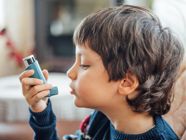What is Snoring and Sleep Apnea?
Loud snoring and excessive daytime sleepiness could be signs of sleep apnea, a serious but treatable sleep disorder. Sleep apnea causes breathing to stop temporarily during sleep, leading to poor sleep quality and reduced oxygen levels in the brain (1).
Although sleep apnea is common, it can be dangerous if left untreated, increasing the risk of poor concentration, accidents, injuries, and chronic diseases such as heart disease and high blood pressure (1).
What Are the Symptoms of Sleep Apnea?
The two main signs of sleep apnea are (1):
- Loud snoring with breathing interruptions (lasting a few seconds).
- Excessive daytime sleepiness and fatigue, even after a full night’s sleep.
Patients may unexpectedly fall asleep while watching TV, having a conversation, or even driving.
Other Symptoms May Include:
- Irritability & mood changes
- Waking up with a dry mouth
- Morning headaches
- Forgetfulness & difficulty concentrating
- Depression
Sleep Apnea vs. Regular Snoring: What’s the Difference?
Not everyone who snores has sleep apnea, and not everyone with sleep apnea snores.
The key difference is how you feel during the day. Simple snoring does not usually affect sleep quality as much as sleep apnea.
🔹 If you gasp for air, choke, or make unusual breathing sounds while sleeping, it could be a warning sign of sleep apnea (2).
What Causes Sleep Apnea?
The cause of sleep apnea depends on its type (2):
- Obstructive Sleep Apnea (OSA) – The most common type, occurring when the muscles and tissues in the throat relax too much during sleep, blocking the airway. Loud snoring is a major symptom.
- Central Sleep Apnea (CSA) – Occurs when the brain temporarily stops sending signals to the muscles responsible for breathing. People with CSA rarely snore.
- Complex Sleep Apnea Syndrome – A rare condition that combines both types of sleep apnea.
Risk Factors for Sleep Apnea
Certain factors increase the risk of developing sleep apnea (3):
Risk Factors for Obstructive Sleep Apnea (OSA):
- Obesity
- Aging
- Large neck size
- Smoking
- Family history of sleep apnea
- Enlarged tonsils
- Men are 2-3 times more likely to develop OSA
- Allergic rhinitis (nasal congestion)
- Alcohol or sedative use
- Chronic conditions: Heart disease, high blood pressure, diabetes, hormonal imbalances, and lung diseases like asthma.
Risk Factors for Central Sleep Apnea (CSA):
- Age 65+
- Male gender
- Chronic heart disease
- History of stroke
- Use of opioid pain medications
- Living at high altitudes
How is Sleep Apnea Diagnosed?
A sleep study (polysomnography) is the gold standard for diagnosing sleep apnea.
✔ This overnight test is conducted at a specialized sleep lab to monitor:
- Breathing patterns
- Heart rate
- Oxygen levels
- Brain waves & body movements
How is Sleep Apnea Treated?
Treatment depends on the severity and cause of the condition. Options include:
1. Lifestyle Changes
- Losing weight – Reduces excess pressure on the airway.
- Avoiding alcohol and smoking – Especially before bedtime.
- Sleeping on your side – Prevents the throat from collapsing.
- Using nasal strips – May help open nasal passages (5).
2. CPAP (Continuous Positive Airway Pressure) Therapy
✔ The most effective and widely used treatment for moderate-to-severe sleep apnea.
✔ How it works:
- A mask worn during sleep delivers a steady flow of air, keeping the airway open.
- Variations include Auto-CPAP and BPAP (Bilevel Positive Airway Pressure) for tailored airflow support (5).
3. Oral Appliances (Mouth Devices)
- Custom-made by a dentist in coordination with a doctor.
- Help keep the jaw and tongue in position to prevent airway collapse.
- Recommended for mild-to-moderate sleep apnea cases (5).
4. Surgery (for severe cases unresponsive to other treatments)
Some patients may require surgical procedures, such as (3):
- Removing excess tissue from the throat and soft palate
- Tonsillectomy & Adenoid Removal
- Jaw adjustment surgery to widen the airway
- Implanting a device to stimulate tongue muscles, preventing airway blockage
- Tracheostomy (creating an opening in the windpipe) for extreme cases
Important Note:
Sleep apnea treatments focus on symptom relief and reducing health risks rather than providing a complete cure.
📌 Long-term treatment & regular medical follow-ups are necessary to ensure symptom control and treatment effectiveness.
Reclaim Your Restful Sleep!
Are you struggling with snoring, excessive daytime sleepiness, or difficulty concentrating?
Book your consultation today at Al-Ahli Hospital’s Sleep Lab, where our expert team specializes in diagnosing and treating sleep disorders with advanced medical technology.
References
- Sleep apnea - Symptoms and causes, Mayo Clinic
- Sleep Apnea: Symptoms and Causes, Sleep Foundation
- Sleep Apnea: Types, Causes, Risk Factors, Effects on Health, WebMD
- Sleep Apnea: What It Is, Causes, Symptoms & Treatment, Cleveland Clinic
- Sleep Apnoea, NHS






